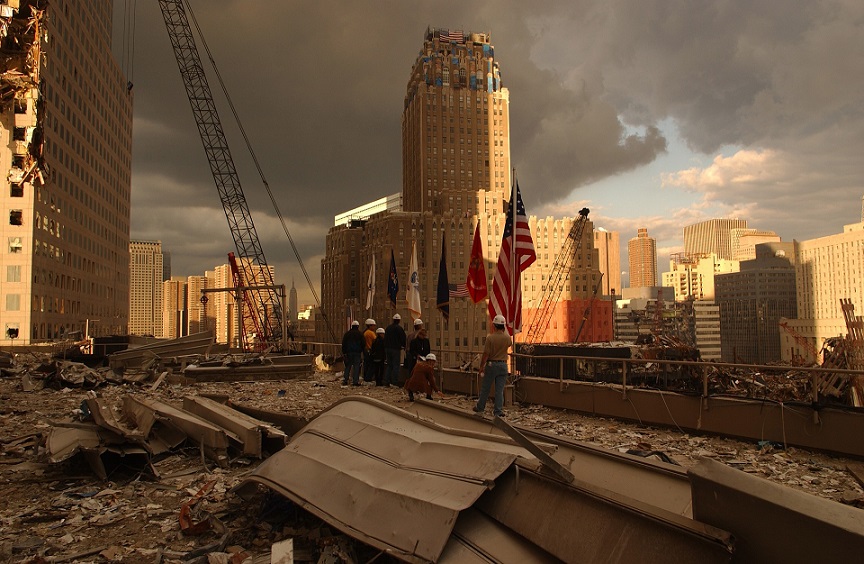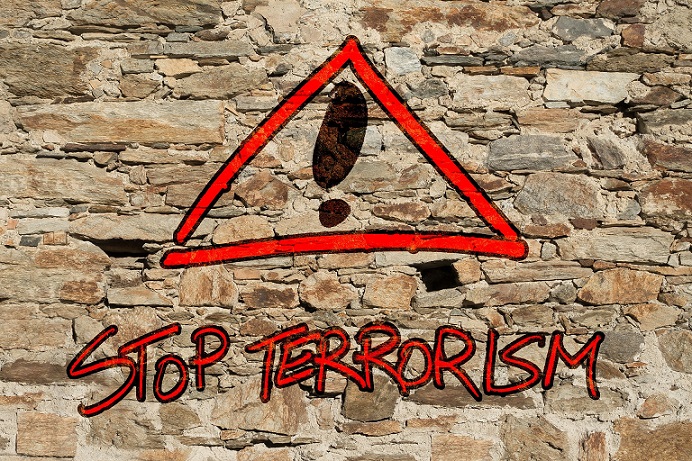It is the question that the mass media is trying to answer following the shooting in a church in Charleston, USA, in which a white youth murdered nine African Americans. The intended use of this term goes beyond its intended use.
 Araceli Oliva
Araceli Oliva
On the 7th of January 2015, the international community was left shaken following an attack against the French satirical weekly magazine Charlie Hebdo, which ended with the death of 11 caricaturists.
The incident occurred in the French capital, where two armed men entered the offices of the magazine shooting and shouting “Allahu Akbar” (God is the greatest).
Immediately the press described the attack as terrorism, a word that the dictionary defines as: “Criminal behaviour of organised gangs, who, repeatedly and usually indiscriminately, try to create social unrest for political purposes.”
In this sense, the mass media used a term that was appropriate to describe this particular attack.
However, the problem lies in the fact that the word “terrorism” is only used when the attacks are carried out by Muslims.
An example was the murder of 77 young people belonging to the Norwegian Labour Party, committed by the extreme right-wing terrorist, Anders Breivik. In spite of being a clear case of terrorism, considering that the victims belonged to a political party, the press did not use this word to describe it in the days following the incident.
 However, now the debate has reached the press after the shooting in a church in Charleston, USA, on the 17th June in which nine African Americans died.
However, now the debate has reached the press after the shooting in a church in Charleston, USA, on the 17th June in which nine African Americans died.
The perpetrator of the acts was a white youth, Dylann Roof, who had shared photos on his Facebook page of the Confederate flag and the flag of the South African Apartheid.
Both flags symbolise white supremacy, an idea that Roof shared and represented in the manifesto that he published on the web. Furthermore, the murderer chose a symbolic church that was an emblem of the black community’s fight for civil rights. Despite this, the Charleston police chief, Gregory Mullen, described the shooting as a ‘hate crime’, which immediately opened debate across the country.
Once again, the media was also late in calling the attack by its name: terrorism.
Nevertheless, on this occasion the press opened the discussion and questioned their own hypocrisy, asking themselves: What do we call terrorism?
However, the problem is not in the definition of the term, but in the intentions behind its use.
 It is advisable to remember that the word terrorist became part of the daily vocabulary of the West following the attack on the Twin Towers in September 2001, and the famous campaign started by the then-president of the USA, George W. Bush – the War on Terror.
It is advisable to remember that the word terrorist became part of the daily vocabulary of the West following the attack on the Twin Towers in September 2001, and the famous campaign started by the then-president of the USA, George W. Bush – the War on Terror.
Also, as part of this campaign the invasions of Iraq and Afghanistan were justified. In this way, the use of the term terrorism became the most efficient way of convincing public opinion and the international community that military intervention was the only alternative.
But for this, it is necessary that the terrorist is always the “other” and never one of “us”. Another example of this is the use of the terrorist threat to justify anti-immigration measures and the closure of borders. The same thing happens with the reduction of freedoms and rights in the name of public safety.
Ultimately, it is about an old practice that seeks to divide the enemy from “us”. Then the enemy was the communist and today it is the Muslim.
And it is because of this that the media finds itself disorientated when the enemy is one of ‘us’.
Besides, the white man always has the benefit of the doubt.
 In this sense, the media looks at the health of the murderer, his past or personal problems.
In this sense, the media looks at the health of the murderer, his past or personal problems.
It is later when his political intentions or religious beliefs start to form part of the analysis.
However, this is a privilege that the Islamic community does not enjoy, as they have already become the new enemy.
On the face of it, the media, the main creators of public opinion, should be faithful to their journalistic work and not participate in any smear campaigns against any social group; campaigns where the only aim is to justify the violation of human rights.
(Translated by Donna Davison – Email: donna_davison@hotmail.com) – Photos: Pixabay












.jpg)












